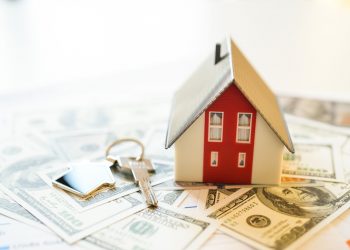RISMEDIA, September 22, 2009—It’s the big conundrum: how can the economy really improve if we don’t create more jobs, but how can we create more jobs if the economy doesn’t improve?
Many of the leading economic indicators point to the early stages of a recovery. Plus, all of the needs that have been deferred during the past few years will eventually need to be met.
We are right at the tipping point but, without putting people back to work, we will be stuck in neutral for a long time. According to a recent Moody’s report, the housing industry won’t rebound for 10 years.
That’s only if we don’t do something about it. We need to stimulate both the buying and selling of houses.
The hardest hit industries have been construction, manufacturing and retail. Some of these jobs are casualties of technology and have been losing workers for decades. But, others are simply the result of the underperforming economy.
These industries need to be stimulated. The best way to achieve that is through increasing home sales. “Cash for Clunkers” helped the auto industry and put some people back to work. But, help for the housing industry would extend into every employment category. A new home needs a new table, and more. A home purchase stimulates nearly $9,000 in additional spending.
Consider the construction industry. It isn’t just the loss of high paying labor and trades jobs, its administrative staff, office supplies, architects, engineers, arborists, steel, lumber, concrete and more. That stimulates investment, creates jobs in related industries such as funding, escrow, title, advertising and real estate. A lot of mouths are fed from a single real estate transaction.
That $9,000 in spending would put the ailing retail industry in a hiring mode. Coincidentally, young people, the bulk of who get their first work experience in retail, have been hardest hit. This would solve that, wouldn’t it?
The other hard hit industry has been manufacturing. Here again, if we stimulate housing purchases, we stimulate construction, which stimulates retail, which stimulates manufacturing. All of which would stimulate tax revenues and pay for our social and political agendas.
Here’s what we should do.
Don’t extend the $8,000 first time tax credit, improve it.
Fist-time buyers in many markets have been unable to use the tax credit because there is no lower priced inventory available. We need move up buyers and their homes to maximize the potential of the program. Besides, there’s nothing sacred about first-time buyers. Extend it to everyone and graduate the amount to account for higher priced markets.
Increase the amount of capital gains exclusion from $500,000 to $1,000,000.
It isn’t the first-time buyer clogging the marketplace, its move up buyers and an abundance of McMansions that are suppressing the market’s recovery.
Consider our experience with the Taxpayer Relief Act of 1997 and its impact on housing sales. It stimulated sellers to move up. This would be particularly helpful in higher cost areas.
Guarantee a portion of the note…like VA.
By guaranteeing 25% of the loan, reluctant lenders would stream back into the marketplace and interest rates could still remain low.
Increase the Mortgage Interest Tax Deduction to $2.5 million and extend it to all types of real estate.
That would stimulate development of community oriented commercial property. It would also give boomers and other small investors an opportunity to regain some of the wealth they have lost.
All of which would stimulate building through market forces rather than bailouts.
And, this is the true irony of our situation; we need to be building now to meet the needs of a growing and shifting population.
In the City of Los Angeles, planners say they will need 113,000 more homes by 2014, just four years from now.
Fix the broken appraisal process.
According to the National Association of Home Builders, one out of every four new home sales is lost because appraisals are coming in below the contract price. The same is true in the resale arena. It isn’t a free market if buyers and sellers are unable to determine value and it won’t recover. Move up buyers won’t be able to sell until all distressed property is off the market.
Pass H.R 2452 and S.823, the Net Operating Loss (NOL) relief legislation in the House and Senate.
The legislation would help all businesses by eliminating the current $15 million cap on average annual gross receipts and allowing 2009 losses to be eligible for the expanded carry back. In addition, the bills would also help taxpayers who have been hit by the Alternative Minimum Tax to fully benefit from any NOL carry back.
These programs don’t require huge expenditures. Mostly, we would be forgoing tax revenue that we aren’t likely to get unless we reward immediate risk taking and stabilize a wobbly economy.
Action on these items would put Americans back to work. No more partisan bickering at the people’s expense. It’s time for bold action, not more excuses. Here is your blueprint. In the words of Larry the Cable Guy…”Get ‘er done!”
George W. Mantor is known as “The Real Estate Professor” for his wealth building formula, Lx2+(U²)xTFP=$? and consumer education efforts. During a career that has spanned more than three decades, he has amassed experience in new home and resale residential real estate, resort marketing, and commercial and investment property. He is currently the founder and president of The Associates Financial Group, a real estate consulting firm.
Mantor can be reached at GWMantor@aol.com.
For more real estate related news on RISMedia.com, be sure to see:
Forty-Two Percent of Americans Have Below-Average Credit Scores
For Some, Small Homes are Just the Right Size










